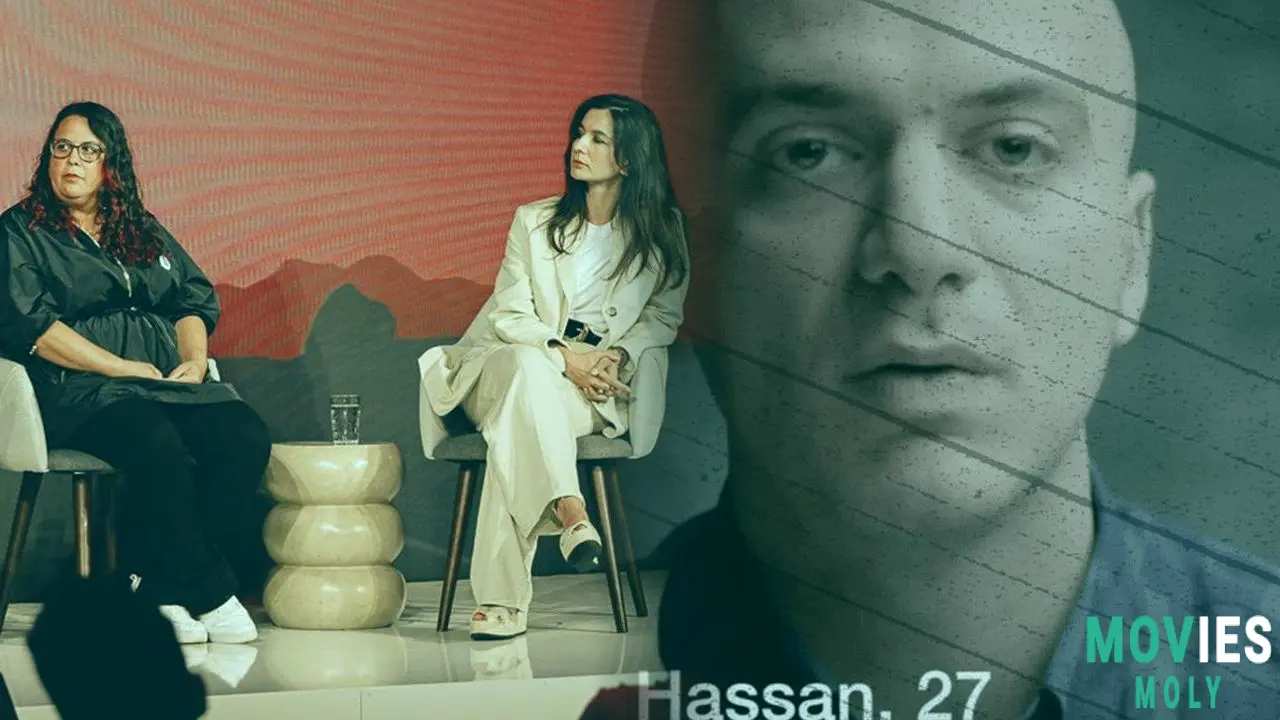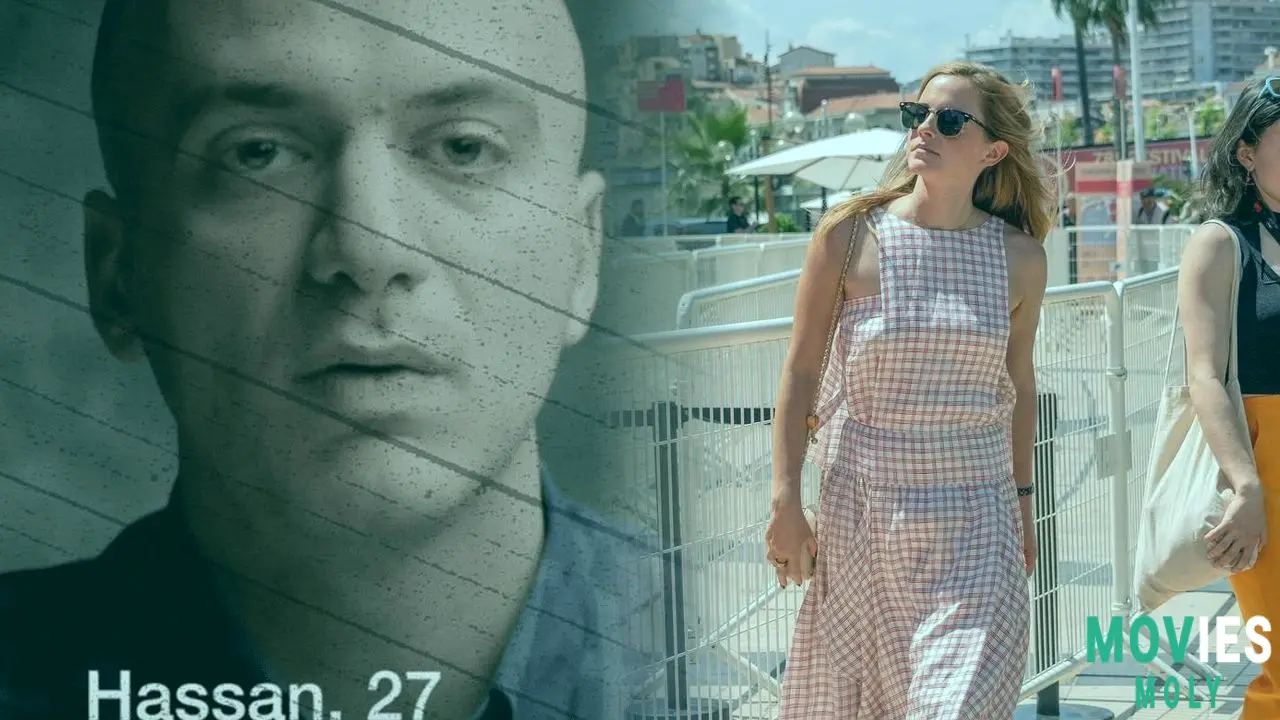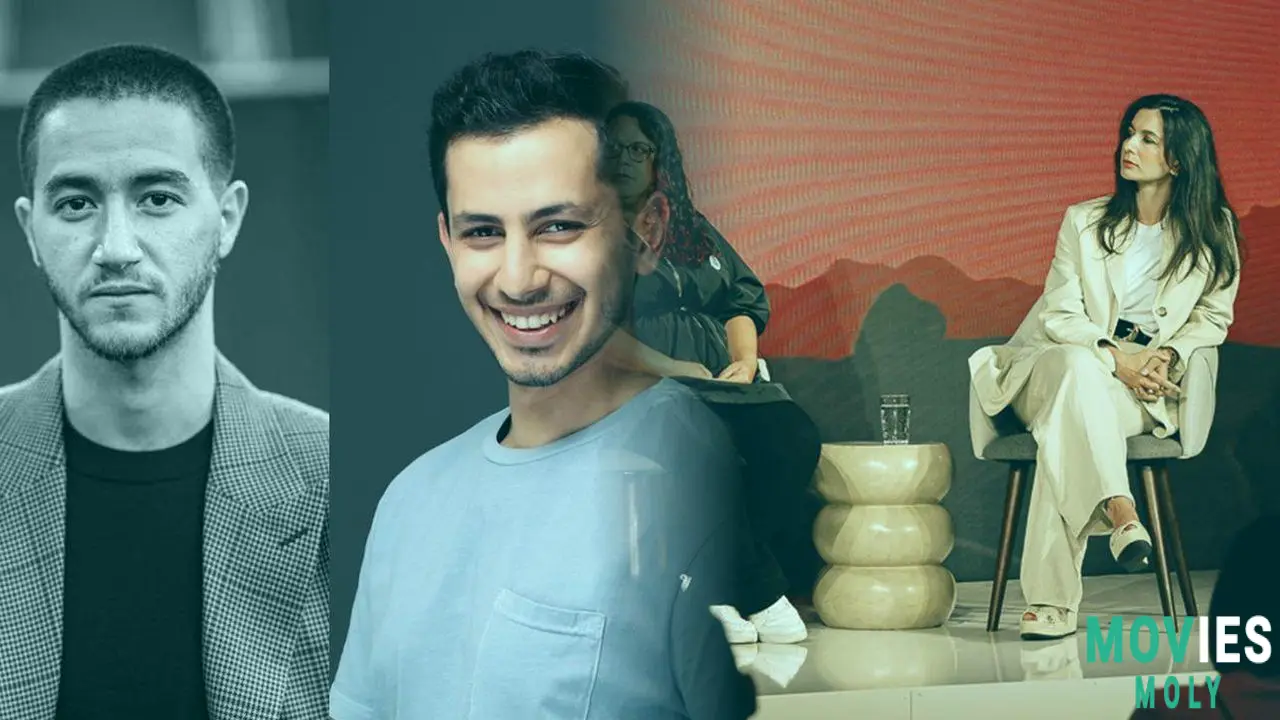Many people might remember Hassan Akkad from the BBC series Exodus: Our Journey to Europe. He was the face of that show which aired in 2016. Akkad, who was an English teacher from Syria at only 27, had to leave Damascus. He was fleeing the regime after getting involved in the Arab Spring protests. He used a GoPro to film his difficult journey to Greece. This trip began on an inflatable dinghy from Turkey, where he had temporarily moved before trying to reach Europe. The camera kept rolling as the rocking boat, put together by human smugglers, started to fill with water. Young men, including Akkad, jumped into the sea to make the load lighter. This scene is often the lasting image of Exodus for many. The show won BAFTAs and International Emmy awards.
You would think that someone who gave such important footage and became such a visible part of a major award-winning show would be well-recognized. But a different, less pleasant image has now come out about Exodus. This new information reveals a hard truth about how television can sometimes take advantage of people. Recently, at the Opening Knowledge across Research and Entertainment Summit in London, Akkad shared a surprising piece of information. He revealed he was neither paid nor given credit for his contributions to Exodus by the producers. This news was a big shock.
When Akkad later tried to use the show’s success to get into the film business, everyone only wanted more stories about Refugee hardship. "Everyone approached me and wanted to make something about refugees," Akkad said. He has since directed his first short film, Matar. He told the crowd, "I was like, 'Guys, I have other ideas,' and they’re like, ‘Nah.’" He felt that while people talk about being kind and including everyone, they often care more about meeting a "diversity quota." He explained, "'Hassan is a refugee and Muslim — great for the refugee quota!' But when it comes to doing it, people don’t put words into action." This is a tough reality about how certain industries operate.
Hassan Akkad's Bold Actions During The Covid-19 Pandemic And His Fight For NHS WorkersThe Syrian Filmmaker's Unforgettable Stand For Fair Treatment For All Immigrants
Hassan Akkad’s story continued in another unexpected way when the Covid-19 pandemic hit. He took a job as a cleaner at Whipps Cross hospital in east London. He felt he needed to do his part during the emergency. In May, Akkad made a heartfelt video address to then-Prime Minister Boris Johnson. He spoke, close to tears, into his phone camera at the end of a tiring shift. This honest speech was made on behalf of immigrant NHS workers. These workers were shamefully left out of the government’s bereavement compensation plan. They were also forced to pay a fee to use the hospitals they risked their lives to keep running. Akkad’s message was directly important in getting the prime minister to change his mind the very next day. It was a strong show of his dedication to fairness.
Akkad reflected on his experiences. He had been held in Syrian jails. Even with that, he said, "I don’t think I have ever been as scared walking into a building as I was that first day in April." He described his British Ghanaian boss, Albert, who worked on the ward for 15 years, becoming his friend. They would arrive early to clean and disinfect everything. "We were 18 people on the wards, and we came from 12 countries," he shared. Their conversations during breaks helped them get through the difficult reality of what they were seeing. He remembered feeling "completely betrayed, stabbed in the back" when the government announced the unfair policy regarding immigrant NHS workers. His video was a direct release of those frustrations. He noted, "There was this feeling, too: I have come from Syria; these are not things I would expect to encounter here."
His intervention was incredibly effective. The prime minister never directly responded to Akkad, but the policy was reversed almost immediately. Akkad thinks this happened partly because refugees, especially Syrians, are usually the ones receiving help. So, when he was helping others and raising money for a hospital charity, it seemed to flip expectations. He rejects the idea that this is a contradiction. He fought for human rights in Syria, and he sees no reason to stop just because he found a home in the UK. He believes that "the people that get excluded from help are always the most vulnerable. In this case the cleaners and porters." His actions showed that he believes everyone deserves fair treatment, no matter where they come from.
Hassan Akkad's Current Filmmaking Projects And His Personal Reflections On Life

Moving Beyond The "Refugee Story" And Sharing His Broader Worldview Through Art
Hassan Akkad is now working on several creative projects. He recently directed a short docu-fiction film called Matar. This film is based on the experiences of Ayman Alhussein, a Syrian refugee and cinematographer, who worked as a delivery driver. Matar examines the challenges asylum seekers face in the UK’s immigration system. Akkad emphasized that these are "our lived experiences and stories that need to be told." He wants the film to raise awareness and understanding for those seeking asylum. He hopes it encourages people to talk about immigration policies and the value of community.
Akkad is also developing his first feature film with BBC Film. He is also writing a memoir. He has a contract with Pan Macmillan. He says, "I want people who read it not to cry but to campaign." This shows his ongoing desire to use his experiences to create a positive change. He recalls that even when he was close to drowning during his journey to Europe, his instinct to tell stories helped him. He could operate a camera and speak English, giving him a small advantage over others. He felt that being an observer, even in dangerous situations, helped him process the reality a bit.
Akkad has reflected a lot on how his experiences changed him. He admits he views the world more cynically now. But he is also thankful for some things that happened. He said, "I was this kid in Damascus with quite a nice life, but I wasn’t always nice. I was a bit racist sometimes, a bit class-ist. So it has been an education." He learned what it was like to survive on food parcels in Calais and sleep in a park without shelter. These hard experiences shaped his perspective. He also struggles with complex PTSD. He had to search online to understand what was happening in his head. He found working at the hospital helped him access some of that trauma. He said, "I came out of working at the hospital able to tell people that I am not a victim."
Hassan Akkad's Views On The UK And The Continuing Challenges He Faces

His Hopes For A Free Society And The Ongoing Immigration Battles
Hassan Akkad has often been asked to carry the label of "victim" as a refugee. "People always want to see you as some symbol of pain," he says. He dislikes how people either pity him or put him into a box. He wants opportunities, not just sympathy. When he posted his hospital video, many production companies contacted him. They wanted him to be part of their Covid documentaries. But they always wanted him as a contributor, never as a collaborator. Instead, he decided to make his own film about his NHS team.
Akkad admits he was stubbornly set on coming to the UK. He had studied English literature. He thought of London as a place where democracy and human rights were strong. He had lived under a totalitarian government for two decades. He wanted to live somewhere he could be free. He even watched the film Braveheart many times in Syria. William Wallace's cry of "Freedom!" stuck with him. He jokes now that he might have been careful what he wished for. He is not sure he even wants to stay beyond next year. He suggests that for someone from Syria, "the creeping authoritarianism is quite vivid here now." He points to government contracts going to friends of politicians. He also mentions politicians breaking rules without facing consequences. He feels there is a "delusional democracy where people are lied to, and vote for the liars."
He made his stand about the NHS even knowing his visa expires next March. He has to apply for indefinite leave to remain. "I was worried about putting myself out there," he confessed. He wonders if British people will ever protest more. Not all of Akkad's experiences in the UK have been negative. He lived with a volunteer in Hitchin. Then a family in Brixton took him in. He got a job with a charity and was given a camera to pursue his passion. "Those acts of generosity are what you need," he says. He feels these are reasons he does the work he does now.
London has slowly started to feel like home for him. He has favorite places and a close group of friends. His personal life has also seen some ups and downs. Akkad’s girlfriend is Farah, a fellow Syrian émigré. Her family home in Damascus was destroyed by bombing. They were meant to get married last month. The wedding was postponed. Akkad is used to hopes being delayed and uncertainty. But he says, "It will happen," speaking about their future plans. "But of course again we will have to wait." His story continues to be one of resilience, even in the face of ongoing challenges.



